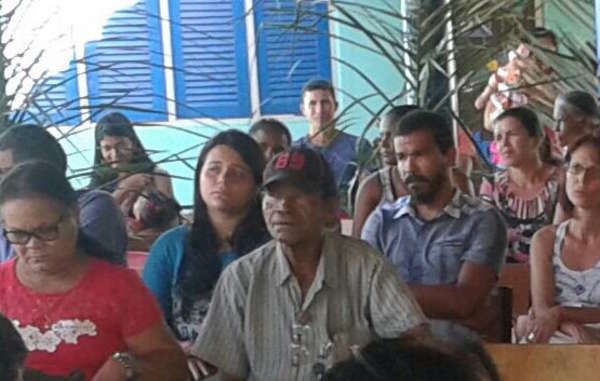João Natalício Xukuru-Kariri, or Seu João, as he was warmly nicknamed, was an indigenous leader in the Northeast of Brasil who defended, for many years, the right of his people to their ancestral lands.
Respected and admired by many, on the day before his death, Seu João took part in the opening of the II Pedagogical Seminar: The Walk of the Warriors Xukuru-Kariri, in a tribute to Maninha Xukuru-Kariri, an important cultural identity defender who died in 2006. During the event, which included debate circles with indigenous youngsters about the political situation and the land issue, Seu João talked with emotion about his indigenous companion and the struggle for the land.
The human rights defender lost his life in the early morning of October 11, 2016, at his door step, in the Fazenda Canto, an indigenous Xukuru-Kariri land located 7 kilometres away from the city of Palmeira dos Índios, Alagoas. Two men, not yet identified, attacked Seu João to death.
The region has, as said by another Xukuru-Kariri leader to Cimi (Conselho Indeginista Missionário), “a history of violence due to the fight for land”, given that the process of land demarcation of indigenous territories in Palmeira dos Índios has been dragging for years and, in 2013, was suspended.
Members of the Cimi conducted an interview with Seu João in 2014 and have disclosed, already after he passes away, some of the leader’s singularities: “[Seu João] made sure the conversation only began after making coffee, rolling a cigarette and accommodating everyone in the living room of his home, in which garden he was murdered. On the walls painted blue, Seu João kept the portraits of his parents, in old and worn out frames, along with traditional instruments of the people: cocar, maracás, bows and arrows.
Angelo Bueno, a missionary of Cimi who met Seu João in 1992, has described him as a “discreet person and a loyal warrior of the indigenous movement, helping in the actions of planning and assessing the fight, and also an animator of the Ritual of Toré”.
Seu João is, without a doubt, a great loss for the indigenous peoples of the Northeast of Brasil and for human kind.
